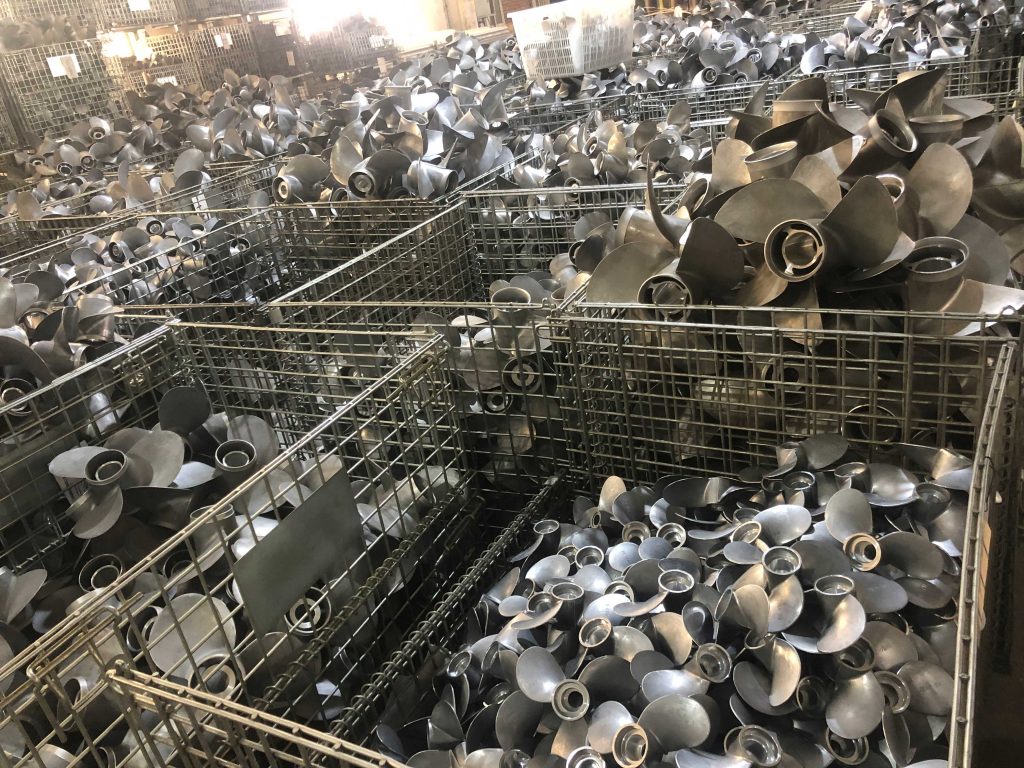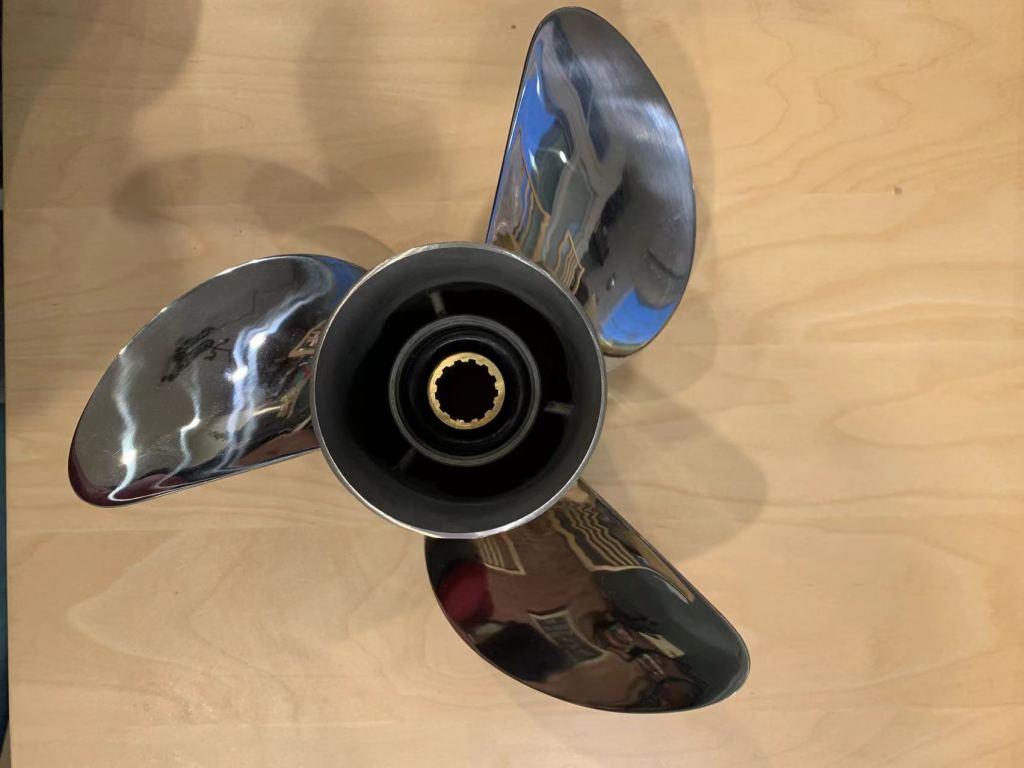When the boat is on the water, extreme caution must be exercised and alert to the en route environment and floating objects in the water. Because the speed of the propeller is very fast, the very small floating objects in the water will propeller produce different degrees of damage. Especially in shallow water, the effect of rocks on the propeller can be fatal.
VIF knows that the quality of the propeller is the most critical, so we provide quality protection for up to six months. When the customer finds a problem with the propeller, we can provide a free replacement service.
If your propeller is unfortunately damaged, you may face the following three situations.
1. Reduction of propeller performance
2. Increased fuel oil consumption
3. Maintenance costs incurred
Below I describe these situations and how to avoid them.
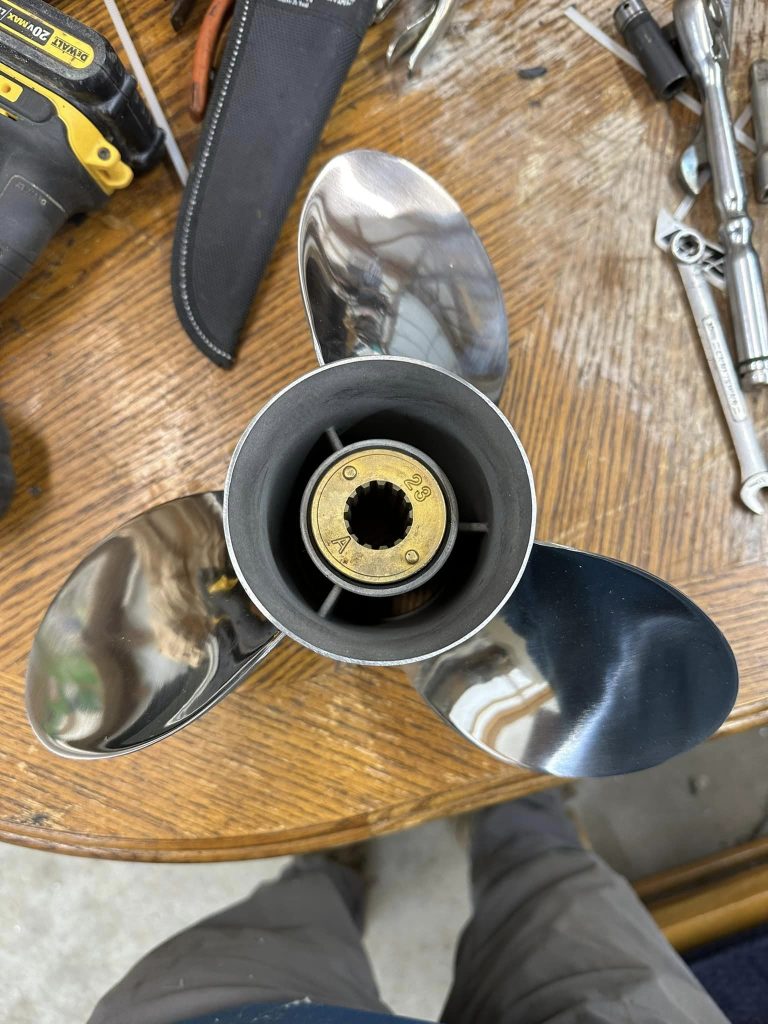
Reduction Of Propeller Performance
Once the propeller blade is bumped and dented, the performance of the propeller will be reduced. The general propeller blade will be worn very smoothly; once there is a small gap, then the propeller blade will appear bubbles and empty words phenomenon which will lead to a decline in propeller efficiency and performance degradation.
Excessive propeller shaking: Propellers play an important role in the stability and balance of your sailing. If the propeller is damaged, you will feel a very pronounced sense of vibration during the ride. Although it may not have a great impact on your driving safety, your driving experience will be very poor.
Please keep in mind that once the propeller is damaged, you are potentially at risk every time you go out sailing. If you don’t pay attention, as propeller damage accumulates, there is a good chance that you will break down and get stuck in the middle of the lake.
Increased Fuel Oil Consumption
With the increase in fuel prices, we have recently received a number of questions from customers about improving fuel efficiency. One of the major reasons for the decrease in fuel efficiency is the damage to the propeller blades.The four main factors for the increase in burn rate are listed below.
Reduced Efficiency:
A damaged propeller may have dents, bends, or other irregularities on its blades. These imperfections can disrupt the smooth flow of water around the propeller, leading to reduced efficiency. The damaged propeller may experience increased drag and turbulence, requiring the engine to work harder to maintain the desired speed. This extra effort consumes more fuel.
Increased Cavitation:
Cavitation occurs when the pressure around the propeller drops to the point where water vaporizes and forms small bubbles. These bubbles collapse violently when they reach areas of higher pressure, causing tiny explosions. Cavitation can be more pronounced with a damaged propeller. When cavitation happens, it reduces the propeller’s effectiveness and causes additional vibrations, leading to decreased efficiency and increased fuel consumption.
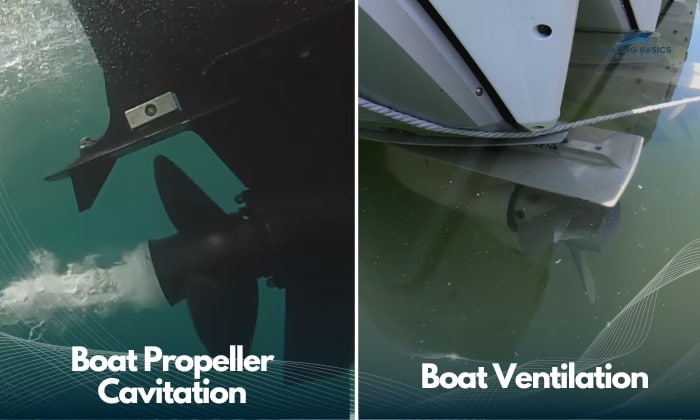
Altered Blade Geometry:
A damaged propeller may have altered blade geometry, such as twisted or bent blades. This change disrupts the designed hydrodynamic flow of water and affects the propeller’s ability to efficiently convert engine power into thrust. The altered blade geometry can lead to imbalanced forces and vibrations, increasing fuel consumption.
Loss of Blade Area:
Damage to the propeller blades, such as chips or erosion, can result in a loss of blade area. This reduces the propeller’s ability to generate thrust efficiently, requiring the engine to compensate by producing more power and consuming more fuel.
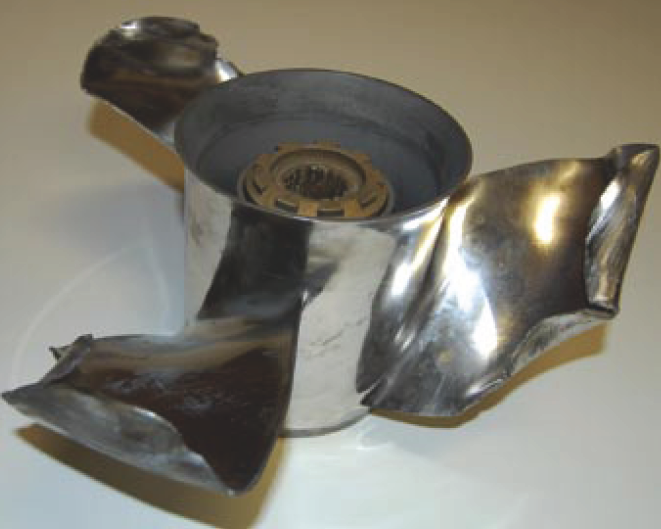
Maintenance Costs Incurred
If the propeller is badly damaged by hitting rocks in shallow water, the propeller must be replaced. You can read this blog for more details. Propeller imbalance due to damaged propeller blades can damage your motor. If the motor is damaged, then repair costs will be higher.
So it’s important to check your propeller regularly because it will not only protect your boat but also your wallet.
Conclusion About What Happens When The Propeller Is Damaged
If you look at an outboard boat prop, you might already know the answer to this question. Boat Propellers are very intricate, brittle, and difficult pieces to work with. An outboard propeller repair is very difficult, as it requires precise straightening, welding, and reconfiguring of the prop.
That being said, the propeller repair process is certainly not as simple as putting on some duct tape and the repair is usually not cheap, but it may be more cost effective than replacing it. If your propeller has been damaged, you must have your propeller repaired because even a small problem with it can seriously affect the boat’s performance. But if your propeller is well beyond repair, I suggest you consider buying a new one just to be safe.
FAQ about What Happens When The Propeller Is Damaged
How can I tell if my boat propeller is damaged?
Look for visible signs of dents, bends, or chips on the propeller blades. Excessive vibrations during operation can also indicate propeller damage.
What are the risks of using a damaged propeller?
A damaged propeller can lead to reduced performance, increased fuel consumption, and potential breakdowns or failures while out on the water.
Can a damaged propeller affect my boat’s stability?
Yes, a damaged propeller can cause excessive shaking and vibrations, which can affect the stability and balance of your boat.
How does propeller damage impact fuel consumption?
Propeller damage disrupts the smooth flow of water, leading to reduced efficiency, increased drag, and turbulence. This requires the engine to work harder, consuming more fuel.
What is cavitation, and how does it relate to propeller damage?
Cavitation occurs when water pressure drops, forming small bubbles that collapse violently. Damaged propellers can experience increased cavitation, reducing efficiency and increasing fuel consumption.
Can a damaged propeller be repaired?
Depending on the extent of the damage, propellers can often be repaired through processes like straightening, welding, and reconfiguring. However, severely damaged propellers may need replacement.
How frequently should I inspect my boat propeller?
It is recommended to inspect your propeller regularly, especially after encounters with debris or shallow water. Regular maintenance can help identify and address damage early.
What precautions can I take to prevent propeller damage?
Be cautious and aware of your surroundings while on the water, avoiding submerged objects, rocks, and shallow areas. Proper navigation and slower speeds in hazardous conditions can help prevent damage.
Can a damaged propeller cause damage to the boat’s motor?
Yes, a damaged propeller with imbalanced blades can cause vibrations that may damage the boat’s motor. Repairing or replacing the propeller is crucial to prevent further complications.
Are there any cost-effective alternatives to propeller repair?
In some cases, propeller repair may be more cost-effective than replacement. However, if the propeller is significantly damaged or beyond repair, it is advisable to purchase a new one for optimal performance and safety.

